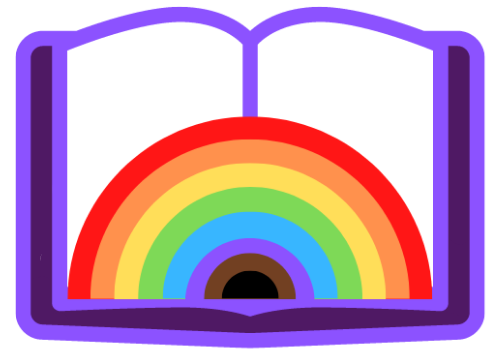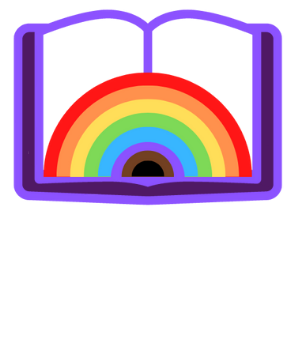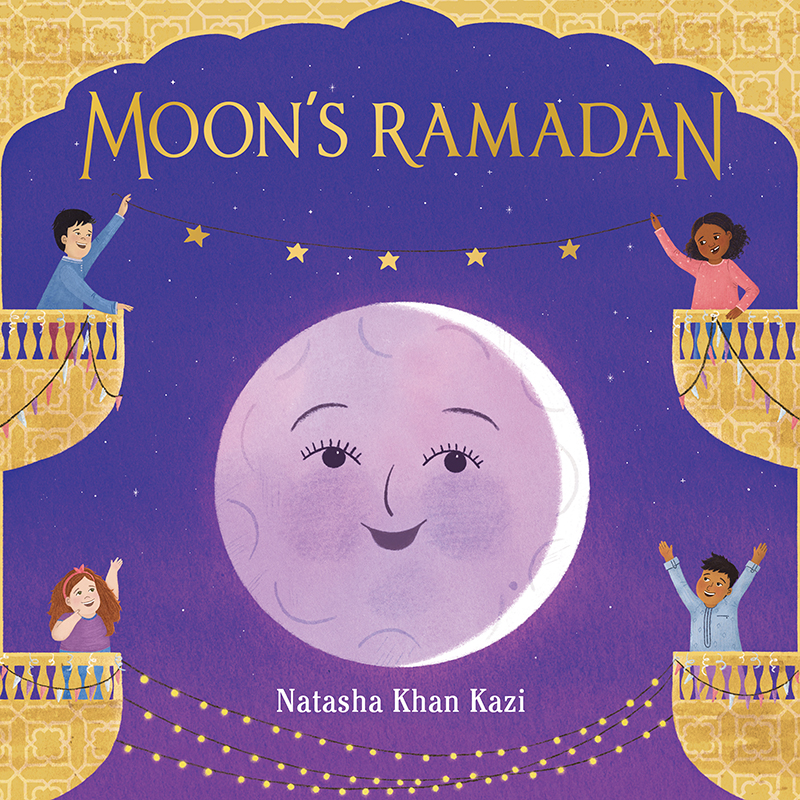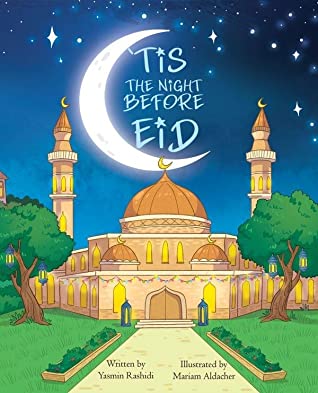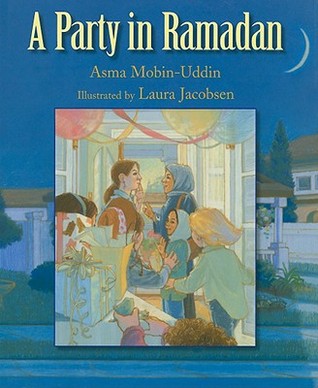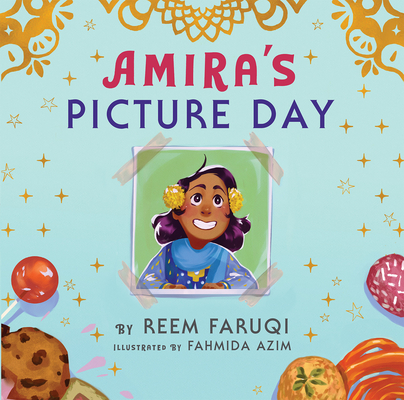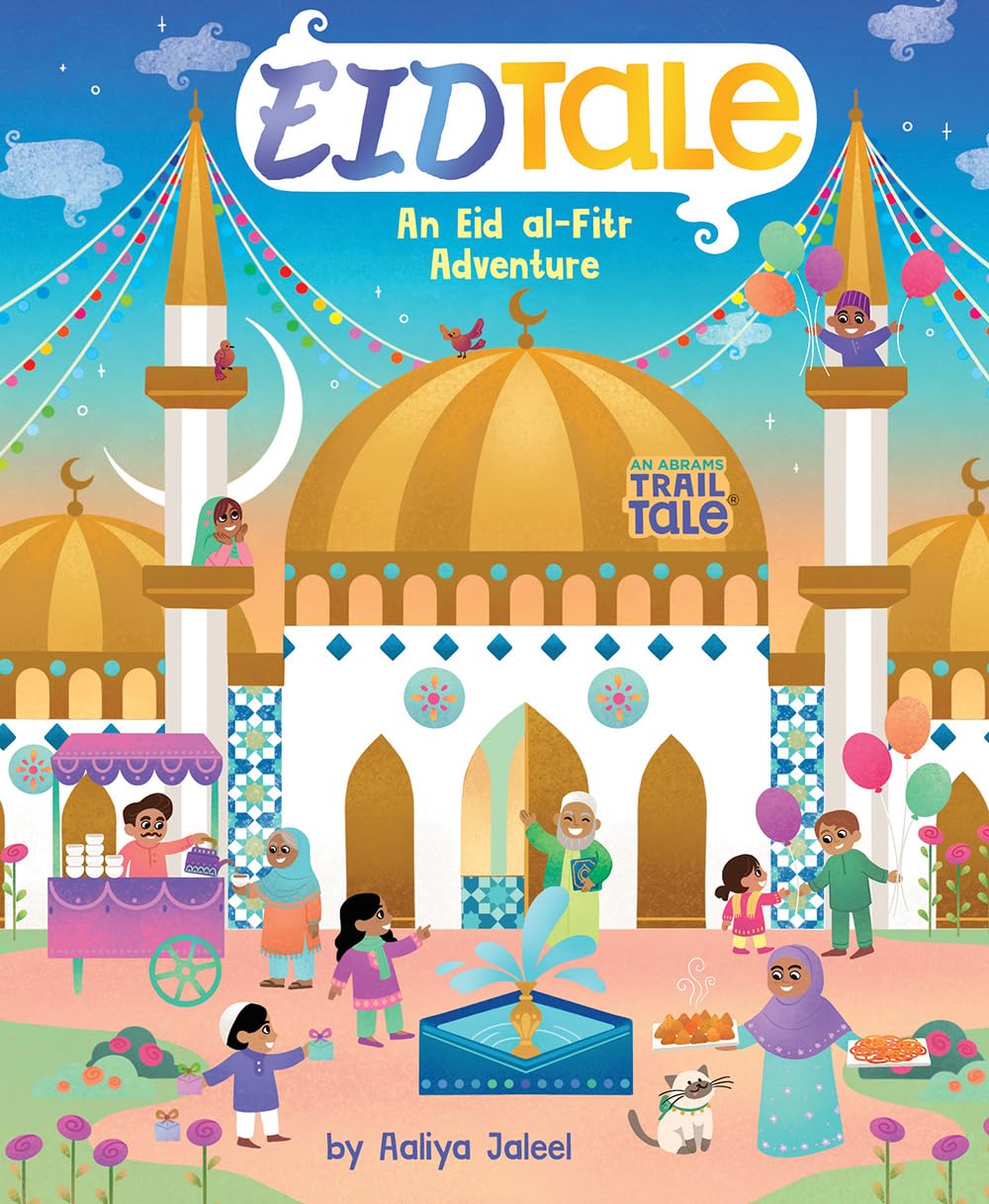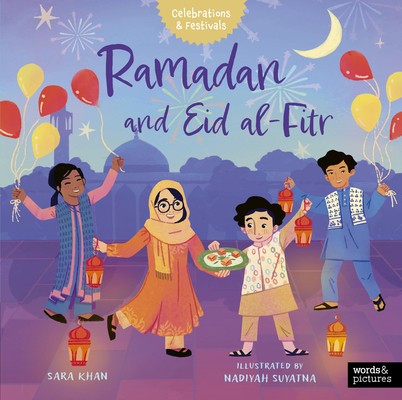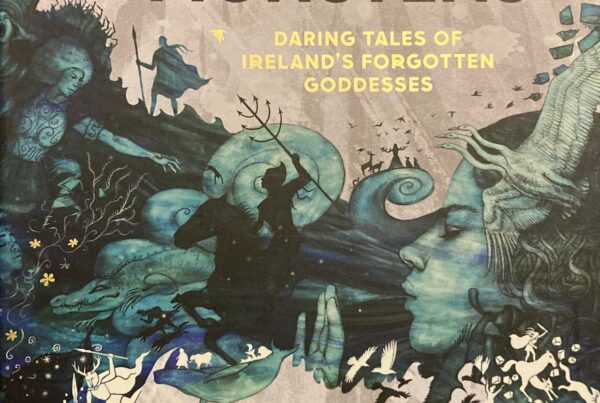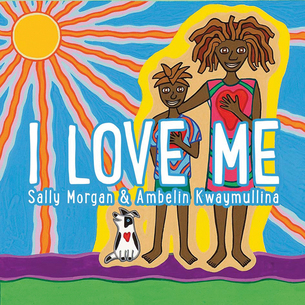By Kirin Nabi (aka Islamic School Librarian)
With help from Shifa Saltagi Safadi (Muslim Mommy Blog)
A Note from Miss Kate
Every year two billion people celebrate Ramadan. That’s over one-quarter of the world’s population! That means that, even if you don’t think you have anyone observing Ramadan in your community, you almost certainly do. And it’s important that we show our Muslim friends support by acknowledging and celebrating their rich cultural traditions.
It’s also important, here and always, to focus on books by those who share in the identities of the subject matter. These provide better information. While there may be nothing that is outright offensive in a book written by someone outside of a community, so often much is missed. A Ramadan book that doesn’t cover the most important aspects of the holiday can flatten our understanding rather than enrich it.
– Ms. Kate (she/they)
Read Broadly - Natasha Khan Kazi (she/her)
Islam is not a monolith; it is a mosaic of different cultures, traditions, and ways to practice. I grew up in a diverse Muslim community: my Imam was Black, my Islamic school teacher was Syrian, and my peers were Arab, African, and South Asian. Learning about different cultures and traditions within Islam was a part of my Islamic education.
Post 9/11, when the “Muslim world” narrative became popular, the idea was so foreign to me. Islam is not a centralized religion. No one voice, or story, can speak for a religion practiced by almost two billion people. To begin to understand is to read broadly. I share a small selection of stories that span cultures, but this is just a start. Keep supporting diverse Muslim stories and let the publishing industry know there is room for more.
– Natasha Khan Kazi (she/her)
Scroll through and check out all these recommendations!
Filter
Kirin Nabi (aka Islamic School Librarian)
It’s Ramadan, hurray! And if you are a librarian, educator, homeschool coordinator, parent, or community member, it may have you wondering how to share an Islamic holiday with those around you. As an Islamic School librarian, my go to answer is almost always, books, and the month of fasting is no exception. There are so many readily available books about the ninth month of the Islamic calendar that incorporate humor, joy, or cultural practices that finding a book to meet your needs is not difficult.
– By Kirin Nabi (aka Islamic School Librarian)
Books Recommended by Muslim Book Reviews
This year a group of fellow book reviewers (Muslim Book Reviewers), put together a list of titles to share in the public sphere. Books that are not “preachy,” are readily available mainstream, and serve as great tools to present a holiday that more than two billion people in the world celebrate. Whether you are reading the stories, setting up a display, asking a Muslim parent to come in and share, or making recommendations to others, the list is a great starting place.
Be Mindful When Selecting What to Read and Present
Be sure to read the selected book multiple times before you share. If you are not sure how to pronounce a word, ask or research to get it right. Often Islamic books reference larger cultures, American, Pakistani, Arab, and Hispanic, to name a few. As a result, often the terms used in books might not be the same. The Arabic term is the default and the standard.
The same goes if you don’t feel confident in what a term or phrase means. The idea is to embrace the concepts of the holiday in a warm and accepting way. That means spending the time needed to understand what you are sharing.
If you shrug something off because you don’t know, or can’t pronounce it, the messaging to the audience is also dismissive. If you don’t feel that you can effectively convey the content, consider reaching out to a parent or someone from the Muslim community to come and share a story.
To be an ally means that you know when your voice shows and amplifies inclusion, but you also recognize when you may need to allow someone with OWN voice credibility to be centered to connect with the audience. There is no single answer for every situation, you have to know your capabilities and know your listeners.
In some cases, grabbing a book and “learning together” is a great premise, in others, you are helping the Muslim children in your care be seen, and helping their classmates understand, and you need to facilitate that. It is your responsibility to assess the need and meet it.
More Than a Series of Facts
Often storytimes about Ramadan become a checklist of facts to convey to make one feel that they shared something Islamic and they can move on to the next item on the agenda. This is surface-level interaction and does nothing more than further alienate the concept from the intended recipients. If you are a teacher in a class, this type of introduction is necessary, but in a storytime format, the emotional component should not be lost.
Resources
A guide for accommodating Muslim students in Ramadan.
Free printable coloring page.
Free printable Ramadan cards.
Free printable connect the dots activity.
Free printable wordsearch.
Free printable Eid coloring page.
Free Printable Eid cards that can also be used as goody bag toppers!
Scroll through to learn more about Islam!
Connect to Something Familiar
If you have the ability, try to connect the story to something familiar: crescent moon and moon phases, charity and giving to the less fortunate, and spending time with family.
There are religious requirements that are practiced universally by Muslims, but you can broaden the impact of what you are sharing by discussing cultural practices or ethnic foods as well. A Muslim in an American story will have a lot of similarities, as well as some differences when compared to a Muslim in Malaysia or Pakistan or Syria.
Islam is a global religion and each culture will add unique traditions to the holy month and the Eid al Fitr celebration that follows. Be mindful to not present Islam as a “foreign religion” and if trying to show representation for a population in your audience, that the books chosen are culturally relevant as well.
Include Music
If you’re already in the habit of adding recorded music to your StoryTimes this is a great time to introduce participants to music they may not be familiar with! If you enjoy singing, why not teach them one of these great songs and demonstrate the way we can all learn together?
Keep Them Engaged
Another thing to consider is the level of the book you are reading. If it is a large group, you want to consider going down a level to hold interest. You’d rather children leave the storytime feeling positively toward the religion, its practitioners, and the holiday, than being bored by reading an on-level book and thus that becomes the association.
You have to know your audience and, when sharing something possibly new to a group, that means you want to hold their attention and engage with them or you are going to miss the mark.
My personal reviews of the books are linked in this list, and most have a plethora of reviews on all the well-known reviews and retail sites as well. Even if you have a parent or community come in to read, you are ultimately responsible for the book(s) chosen. I hope this helps and empowers those trying to reach out and make connections. Thank you for helping our Muslim children feel included and seen.
Ramadan 2023
Ramadan begins on Wednesday, March 23, 2023. Why not exceed expectations by actively welcoming and including our Muslim friends, from the littlest best friends at storytime to their grownups? I believe our efforts will be so, so appreciated by families who just want to be understood.
